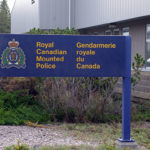Home »

British Columbians urged to prepare for winter storms
As winter weather rolls in province-wide, British Columbians need to prepare for slick streets, freezing temperatures and power outages so they can stay safe and warm.
“As you pull out winter clothing or holiday decorations, think about whether your household is ready for severe winter weather,” said Jennifer Rice, Parliamentary Secretary for Emergency Preparedness. “Do you have a winterized road safety kit in your vehicle? Do you have flashlights and candles in case of a lengthy power outage? Preparing for these hazards now will mean smoother sailing in the event of an emergency.”
Around the province, severe winter weather can cause extremely cold conditions, blizzards, strong winds, falling trees, traffic disruptions and flooding in coastal areas. In December 2018, a windstorm knocked out power to 600,000 households in B.C., resulting in some being in the dark and cold for extended periods of time.
A little preparation can go a long way to keeping people safe during stormy, wintry conditions.
Here are some other tips to keep safe this winter:
* Prepare for extreme cold: Environment Canada will issue Arctic outflow warnings when extremely cold winds that can create wind-chill values of -20 C or colder are forecast for six or more hours. Use caution and limit outdoor exposure under these conditions, as there is an increased risk of frostbite and hypothermia. Parents and pet owners should be particularly mindful of children and pets being outdoors during these times.
* Wear winter gear: Always wear clothing appropriate for the weather. Dressing in layers, with a wind and water-resistant outer layer, provides flexibility for changing conditions. Cover as much exposed skin as possible by wearing hats, scarves and gloves to avoid frostbite. Try to stay dry and change out of wet clothing as soon as possible.
* Be prepared for power outages: Severe weather can cause power outages. Be prepared for up to one week by developing a household emergency plan and putting together an emergency kit. If you come across a downed or damaged power line, assume it is live and a danger. Stay back at least 10 metres (the length of a bus) and call 911 immediately to report it.
* Drive for the conditions: There are fewer daylight hours and blowing snow can further reduce visibility. Wet and icy roads call for extra caution behind the wheel. Drivers should always maintain a safe distance from highway maintenance vehicles. Motorists should monitor DriveBC for up-to-date road conditions and have an emergency kit in their vehicles that includes warm clothes, winter footwear, food and water, a shovel, a flashlight and a fully charged cellphone for emergency calls.
e-KNOW







